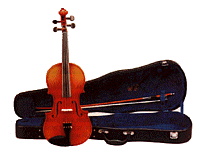

On my way out of town for a summer job before starting college, I purchased a portable typewriter and a book, "Typing in 24 Hours" by Samuel S. Pepe. That summer I taught myself typing, a subject that I avoided in high school. Each pair of the forty-eight pages contained a different set of finger exercises. With diligent practice, I not only taught myself to type, I also taught myself to type mistakes that continue with me to this day. Mistakes that were far more serious before spell check arrived.
As a consequence, I consider the old proverb "Practice makes perfect" to be a half-truth. If one starts to learn something the wrong way (which is often the easiest way), more practice only ingrains a bad habit. It is more difficult to get it right later.
What brought to mind that long-ago experience was a recent conversation with a youth on the subject of religion. It was a straight-forward conversation, absent many of the hurdles of resistant attitudes built on bad youthful experiences that adults bring to such a conversation. Entering into a serious religious conversation with an adult frequently means encountering faulty conclusions about religion solidly imbedded in near impenetrable concrete. I believe it is easier to take a child from ignorance to knowledge that an adult from error to knowledge.
The same seems to be true of our emotional life and our relations with others. Psychological defenses developed to protect our timorous youthful egos carried into our adult lives become an impediment to learning more about ourselves. Verbal tricks used to get our way while young become, in our later years, skillful ways of manipulating others.
Once such patterns are ingrained, we then continue to do things the old way because it is easier "to go with the flow." We also make up reasons to justify our unwillingness to change, reasons that are fully logical and absolutely convincing, that is, until we find our relationships disintegrating, our professional progress stagnating, and our spiritual search stalling. Then, we may be driven to stop and maybe even change. But, after childhood, such change is difficult and often painful.
There is the old story about a stranger in New York, carrying a violin case, who stops an elderly woman and asks how to get to Carnegie Hall. Glancing at him and then at his violin case, she replies, "Practice, practice, practice." But, repeating is not learning; it is developing a habit, a habit that makes us its slave.
Now I wonder, who's the master: the fingers
that reach for the chocolate to sustain me through these Mind
Matters, or my will to keep my fingers on the keys? No, not next
week, but next year I've determined to show my fingers who's boss.
--Robert H. Tucker
16 February 1998